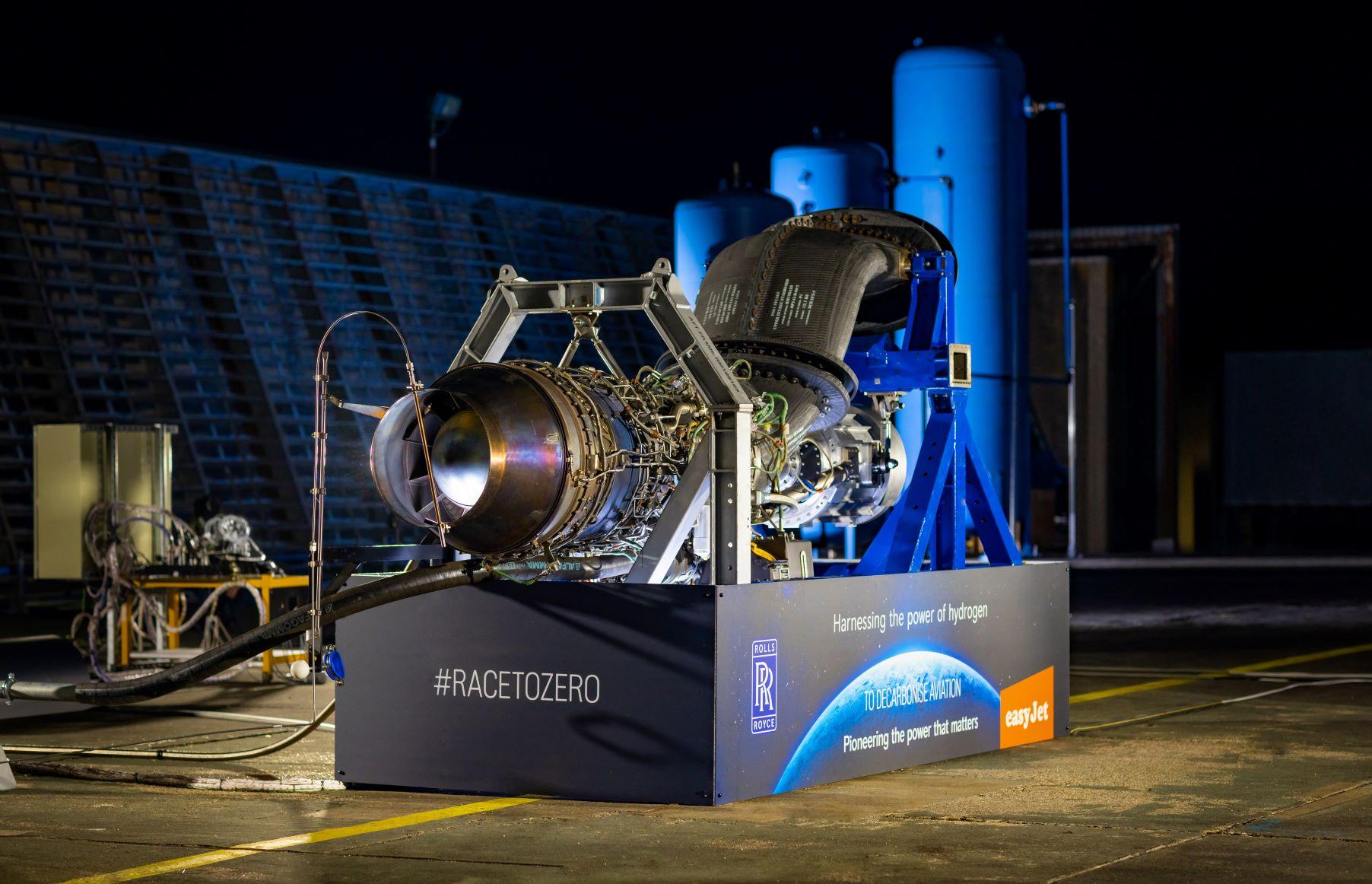
The work forms part of technology evaluations to support the potential use of hydrogen fuel in small and mid-size transport aircraft from the 2030s onward.
As part of wider plans to achieve net zero carbon emissions by 2050, Rolls-Royce and program partner airline EasyJet have conducted test runs on an AE2100 turboprop powered by liquid hydrogen rather than conventional jet fuel.
The tests, undertaken on a rig at the UK Defense Ministry’s Boscombe Down facility, mark a “new aviation milestone with the world’s first run of a modern aero engine on hydrogen,” the engine maker says. The modified AE2100 ran on hydrogen supplied by the European Marine Energy Center (EMEC), generated using renewable energy at its production and tidal test facility on Eday in the Orkney Islands.
The demonstration is “a key proof point in the decarbonization strategies of both Rolls-Royce and EasyJet,” says Rolls, which adds that plans for a second set of tests are underway along with longer-term goals for potential flight tests. The work forms part of technology evaluations to support the potential use of hydrogen fuel in small and midsize transport aircraft from the 2030s onward. A second phase, using a Pearl 15 business jet engine, is planned for an unspecified time at the company’s NASA Stennis test facility in Mississippi.
The rig tests build on hydrogen combustion evaluation work underway in partnership with Loughborough University, German aerospace center DLR and Cranfield University. Recent research carried out by the UK Aerospace Technology Institute’s (ATI) Fly Zero and Project Napkin (New Aviation Propulsion Knowledge and Innovation Network) concluded there is market potential for hydrogen-powered aircraft.
The AE2100 used in the hydrogen test was recently used in Rolls’ PGS-1 hybrid-electric demonstrator program and incorporates a modified version of the standard combustor design. For the follow-on demonstration based on the Pearl 15, Rolls intends to develop a more representative integrated hydrogen fuel and combustion system.
Other major engine makers are also planning similar initiatives. The General Electric and Safran joint venture company CFM International plans to fly a hydrogen-fueled version of the GE Passport engine on an Airbus A380 around 2026, and Pratt & Whitney is studying a hydrogen version of the geared turbofan under the Hydrogen Steam Injected Intercooled Turbine Engine program.
Meanwhile, Airbus UpNext, the aircraft maker’s technology innovation arm, also plans to flight test a small hydrogen burning engine at altitude on a powered glider early next year as part of research into contrail formation.




Comments